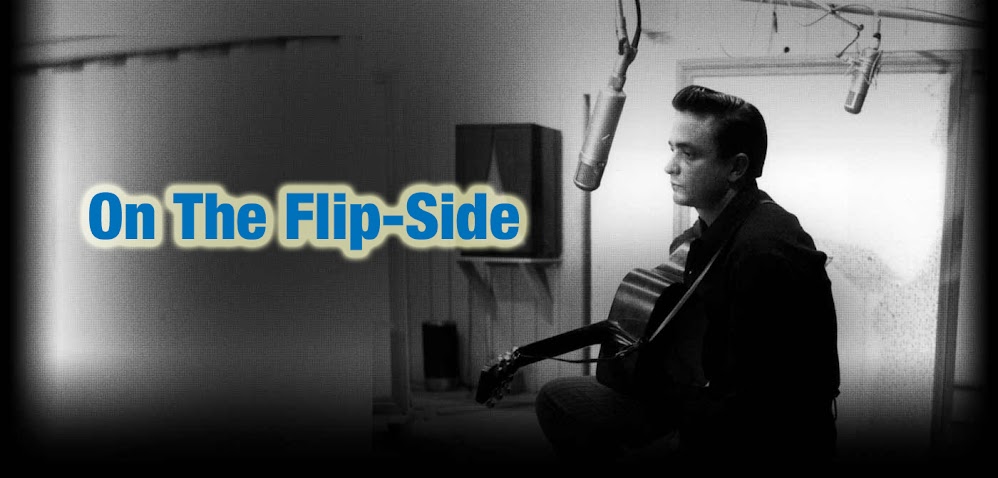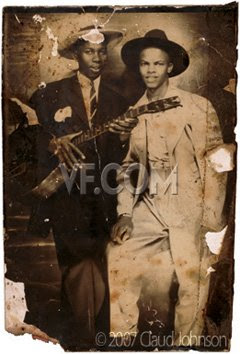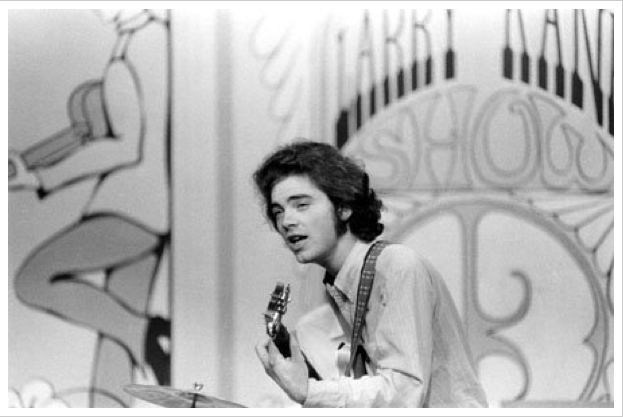
Me? No, no I've never been in a knife fight in a rural juke joint in the South. I did once cut myself shaving though. Don't laugh, it was pretty bad. I bled for hours and had to walk around with a little piece of bloody tissue stuck to my chin. Truth be told, I wouldn't know what to do if I was in a knife fight. However, one thing I do know about rural juke joint knife fights is that if they had a soundtrack (which I don't think they do), the soundtrack would have to be performed by the human knife, Howlin' Wolf.
I trust every reader here knows the work of the Wolf very well. The musical shadow he casts is as large as the man himself (that's about 6' 6" and 350 pounds). Nobody ever sounded like the Wolf before him, and nobody has sounded like him since. Nobody ever will. Most casual listeners are already aware of his excellent records he cut up North in Chicago for Chess Records in the middle to latter half of the 1950's and early 1960's. But there is another goldmine of Wolf records he cut in Memphis' Sun Studios (yep, the same Sun Studios in which a lip quivering cat named Elvis would soon record) with Sam Phillips.
In 1951 the Wolf took his head-cutting band into the small studio to record upwards of 30 songs over the course of the year. The band was every bit as powerful as the Wolf's voice. A voice that is perhaps best described as two-parts sandpaper, one part squeaky-toy stuck in the throat of an alligator, one part Pentecostal preacher, one part devils serpent, one part repentant sinner. Taken together it was 100% Howlin' Wolf.
Not many bands would be able to match the power of the Wolf. But this Arkansas-based band he put together was equal to any task. Powered by over-driven low wattage amps, a drum kit that is less played than beaten into submission, a piano that sounds like it is in danger of splintering into 1,001 pieces, and, of course, Wolf's own cross-harp playing that emulated the chug of a northbound train called Smokestack Lightning. The same train which carried away a teenage fugitive from a righteous crime. This band, like Wolf, was power incarnate.
Wolf's later, more famous work was backed up by one of the all-time great guitarists, the deft finger picker, Hubert Sumlin. But this earlier band had a guitarist with a very different approach. He was an aggressive flat picker named Willie Johnson. Where Sumlin would lay back and beautifully fill in the holes graciously left by Wolf, Johnson would challenge the Wolf at every syllable. Johnson's rugged voice came not from his mouth, but from his fingers. Through those fingers he pushed a small tube amp beyond control as he would mix in jazzy 9th chords with rusty 7th chords to create a full attack that was every bit as powerful as the Wolf. Johnson's guitar work is confident, relentless, brash and without hesitation. He never lays back as he and Wolf stab and swing at each other wildly with their musical knives.
Rock-n-Roll didn't exist yet. But that's only because the marketing department was a couple years late to the game. The work Howlin' Wolf (and occasional band member Ike Turner) did at Sun was as powerful as anything ever recorded at the studio. Sun's owner and sometime producer, Sam Phillips described the sessions with Wolf in the book, Moanin' at Midnight, the Life and Times of Howlin' Wolf : "I tell you, the greatest thing you could see to his day would be Chester Burnett (aka, The Howlin' Wolf) doing one of those sessions in my studio....his eyes would light up and you'd see the veins come out on the back of his neck. Awooooo!" Bold words from a man who recorded Elvis, Carl Perkins, Johnny Cash, Ike Turner, Roy Orbison and Jerry Lee Lewis.
Mr. Highway Man is just one of the many great songs Howlin' Wolf and his band recorded that year in Memphis. Moanin' At Midnight, Evil, Howlin' Wolf Boogie, How Many More Years. Too many great songs to tell you about on two great albums. Enjoy...and don't get hurt!





